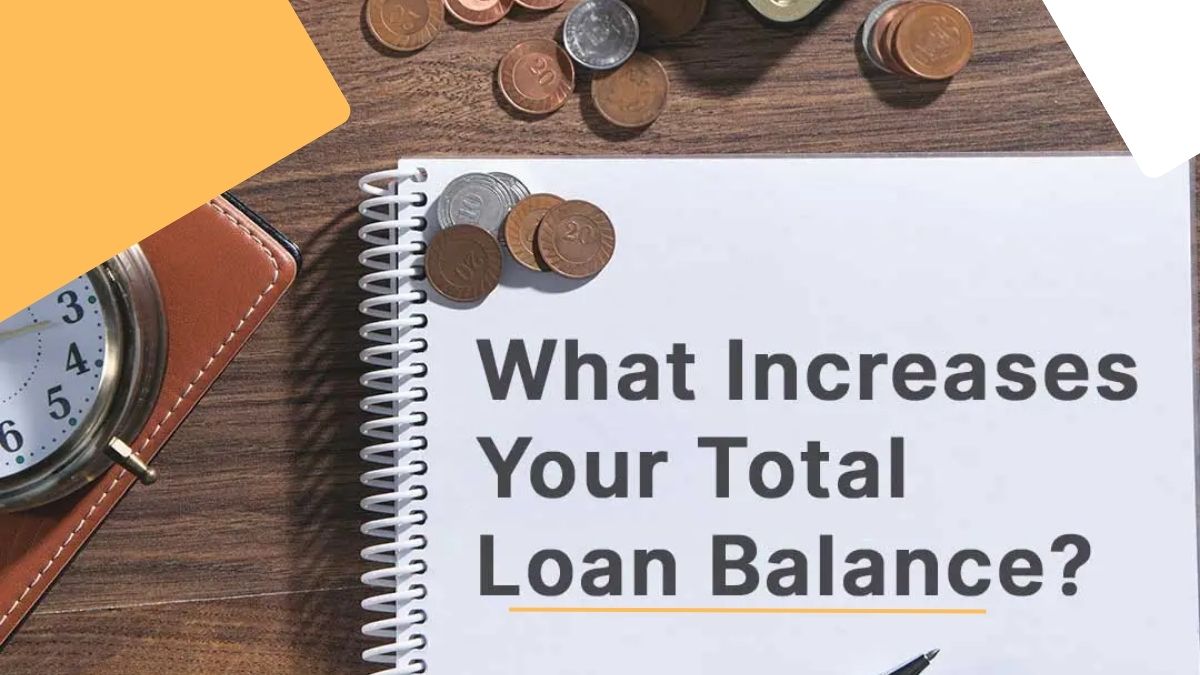What Increases Your Total Loan Balance?
Are you finding it difficult to keep up with your loan payments? Do you feel like your total loan balance is constantly increasing no matter how much you try to pay it off? Well, you’re not alone. Many people struggle with keeping their loan balances under control, and several factors can contribute to this.
In this blog post, we’ll explore some of the common reasons why your total loan balance may be on the rise and what you can do about it. So sit back, grab a cup of coffee, and let’s dive in!
Table of Contents
What is the total loan balance?
- A total loan balance is the sum of all outstanding debts owed by a borrower to their lender. This includes both principal and interest payments that have not yet been fully repaid.
- When you take out a loan, whether it’s for a car, home, or personal expenses, your lender will calculate the amount of money you need to pay back over time. This amount is known as the principal.
- However, when you borrow money from a lender, they also charge an additional fee called interest. Interest is essentially what lenders earn in exchange for taking on risk and lending money to borrowers.
- The combination of principal and interest makes up your total loan balance. It’s important to keep track of this number because it determines how much money you owe and how long it will take to repay your debt in full.
- By understanding what makes up your total loan balance and what factors can increase it over time, you can better manage your debt and work towards becoming debt-free sooner rather than later.
How does your total loan balance increase?
Your total loan balance is the sum of all outstanding amounts on your loans, including interest and fees. It’s important to understand how this balance can increase so that you can take steps to manage it effectively.
Interest is one of the main factors that contribute to an increase in your total loan balance. The longer you owe money, the more interest accumulates on your loan. This means that even if you keep up with minimum payments, your overall debt may continue to grow.
Minimum payments are another factor that can cause your total loan balance to increase over time. When you make only the minimum payment required by a lender or creditor, a large portion of it goes towards paying off interest rather than the principal amount owed. As a result, the principal amount takes longer to decrease and thus increases your overall debt.
Other factors such as late fees or penalties for missed payments also add up quickly and can significantly impact increasing your total loan balance.
It’s crucial always pay attention to how much money is being applied toward each area of repayment when making monthly installments.
To reduce the risk of increased debt consider paying more than just the minimum payment amount due per month to help offset these contributing factors adding years onto many people’s debts unnecessarily.
Interest
- Interest is one of the primary factors that can cause your total loan balance to increase. When you take out a loan, you agree to repay the amount borrowed plus interest over a set period.
- The interest rate on your loan will determine how much extra money you have to pay back. The higher the rate, the more money you’ll owe in interest charges. This is why it’s important to shop around for loans and compare interest rates before making a decision.
- In addition, there are two types of interest: simple and compound. Simple interest only accrues on the principal amount borrowed while compound interest accrues on both principal and previously accrued interest.
- It’s also worth noting that some loans have variable interest rates which means they can fluctuate depending on market conditions. This can make it difficult to predict exactly how much your monthly payments will be in the future.
- Understanding how interest works is crucial if you want to avoid increasing your total loan balance unnecessarily.
Minimum Payments
Minimum payments are often seen as an attractive option for borrowers who want to keep their monthly outgoings low. However, the hidden downside of making minimum payments is that they can significantly increase your total loan balance over time.
When you make a minimum payment, you’re only paying off a small portion of the principal amount borrowed. The majority of your payment goes towards covering the interest accrued on your outstanding balance. This means that with each passing month, you’re hardly making any dent in reducing the actual amount owed.
When consistently choosing to pay just the minimum required by lenders, you may end up taking much longer to clear the debt than initially anticipated. Consequently, this prolonged repayment period results in more interest charges being added to your total loan balance.
Thus, while opting for minimum payments might seem like a feasible solution in terms of managing short-term financial constraints, borrowers must be aware of how this choice may inadvertently lead to an increased total loan balance over time.
Other Factors That Can Increase Your Loan Balance
Unexpected life events can also play a significant role in increasing your total loan balance. For instance, if you experience a job loss or medical emergency, you may be forced to defer loan payments temporarily. While this might provide short-term relief, it could result in larger interest accruals and increased loan balances over time.
In some cases, late payment fees and penalties can add to your outstanding debt as well. If you consistently miss due dates for scheduled payments or make partial payments on your loans, these additional charges will undoubtedly contribute to an escalating total loan balance.
Borrowing more funds while still repaying existing loans is another factor that can lead to higher overall debt obligations. When you take out new credit without fully paying off previous debts, the combined interest rates of multiple loans have the potential to create a snowball effect on your financial situation.
Changes in government policies or terms set by lending institutions might impact how quickly your total loan balance grows. For example, lowering income-driven repayment thresholds or modifying forgiveness programs could inadvertently cause borrowers’ outstanding debts to rise faster than they anticipated.
Conclusion
Your total loan balance can increase due to a variety of factors, most notably interest, and minimum payments. While it may seem daunting, being aware of these factors is the first step in taking control of your finances and keeping your debt under control.
By making consistent payments that exceed the minimum required amount and negotiating lower interest rates with lenders when possible, you can help minimize increases in your total loan balance over time. Always remember to stay informed about your loans and make responsible financial decisions that will benefit you in the long run.






